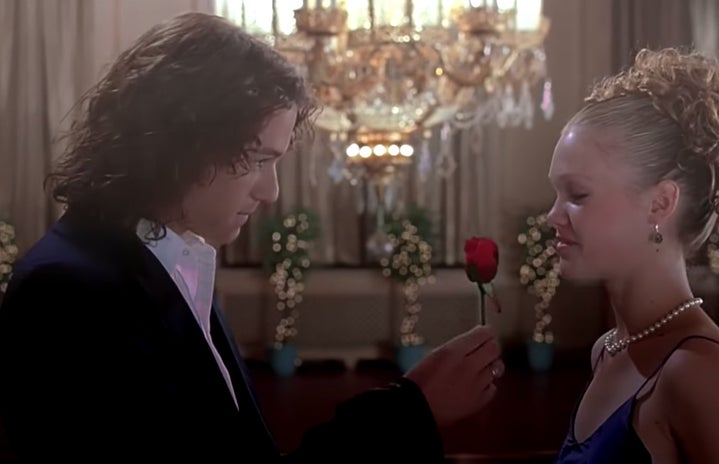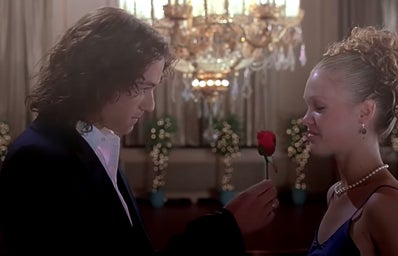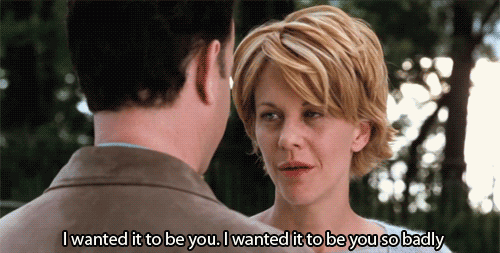It’s fall, which means rewatching “When Harry Met Sally” and trying to figure out how to emulate Meg Ryan’s spectacular autumn wardrobe (you’re welcome). Unfortunately, this article is not about how much I love her blazers, cable-knit sweaters, and loafers, it’s about romantic comedies and why the genre changed so much.
“How to Lose a Guy in 10 Days,” “Pretty Woman,” “Love & Basketball,” and literally any Molly Ringwald movie are all romantic comedies that feature fabulous style icons, an enviable love story, and a nostalgic atmosphere. All movie genres go through changes, and I am here to tell you my absolute least favorite period in the history of the rom-com: Judd Apatow and the nice guy.
You might know Apatow from his films like “40 Year-Old-Virgin,” “Knocked up,” and “Forgetting Sarah Marshall,” or you might recognize his name from his two famous daughters, Iris and Maude. Either way, I’m here to tell you that I think Judd Apatow ruined the rom-com.
Ben Stone in “Knocked Up” is your classic nice guy: He refuses to take care of himself, he only takes about sex and drugs, he refuses to put on a condom when asked (leading to the plot of the movie: an unwanted pregnancy), and he hasn’t matured past the age of fifteen. But guys, he’s nice! It’s not his fault women don’t like him. The Nice Guy is essentially a loveable incel, and Judd Apatow loves to center these men in his films (see: “The 40-year-Old-Virgin” and “Forgetting Sarah Marshall”).
In addition to loving un-successful men, Judd Apatow also hates successful women. We meet Alison Scott in “Knocked Up” as she gets a promotion at her job and Sarah Marshall in “Forgetting Sarah Marshall” is at the height of her television career. To Apatow Productions, these women are up-tight, unlikeable, and ready to be tamed by a mediocre man. Contrast these with the women in Nora Ephron’s films, “Sleepless in Seattle” and “When Harry Met Sally”, our leading ladies are beautiful, ambitious, smart, and witty, characteristics that are celebrated by the men in their films rather than being seen as a flaw in need of fixing.
Judd Apatow took the whirlwind romance of a rom-com and tried to it relatable. In doing so, he created a cinematic universe of men, who despite putting little to no effort into their relationships, they always get the girl that they “rightfully” deserve.
I won’t lie, I have seen most of his films, and I did enjoy watching them. Don’t let this article stop you from indulging in “Anchorman” or “The 40-Year-Old Virgin.” Do let this article stop you from settling for the standards of the Apatow Productions films. The rom-com is very much still alive, it just went into hibernation while Judd Apatow wrote a bunch of movies and then put his wife in them (did he not think we would notice?). The rom-com is a genre that has been historically looked down upon by men as “chick flicks” because it centers female pleasure and Judd Apatow emerged as a savior for men by making romantic comedies with little romance and little female pleasure.
Now, centering female pleasure is not always a good thing. Anyone who watched “Don’t Worry Darling” or saw the trailer would know that female pleasure was a marketing ploy to make people see the movie, and it was used as a means of control rather than an important centerpiece of the film. On the other hand, one of the most quotable scenes of all time from “When Harry Met Sally” is making fun of men’s ability to adequately satisfy women, all while making Sally a more loveable, badass woman. Portraying female pleasure is not inherently empowering, but Judd Apatow has managed to erase women’s sexual and romantic gratification from his storylines entirely. Not only are the women of Judd Apatow productions not empowered, but they are also continually meant to be “brought down a peg.”
If there’s anything you take away from this article, remember that you deserve a Benjamin Barry (“How to Lose a Guy in 10 days”), not a Ben Stone (“Knocked Up”).




